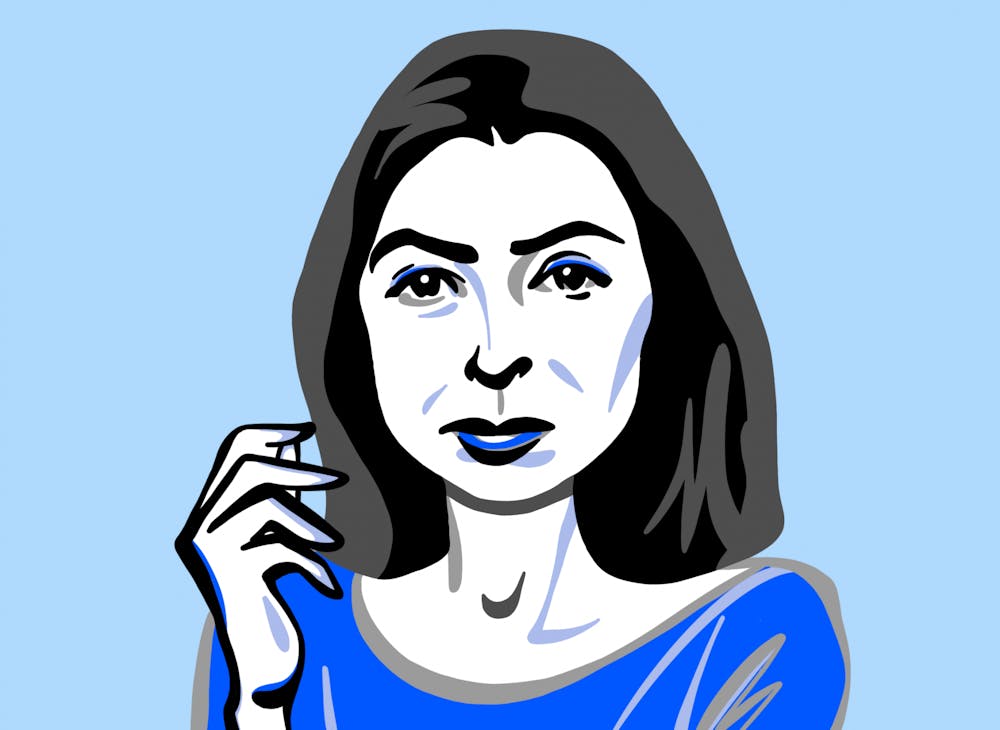In my most recent lecture for “Measure, Management and Motivate,” Prof. Gary Ballinger assigned our class Joan Didion’s 1961 essay “On Self Respect,” a piece featured in her book of essays “Slouching Towards Bethlehem.” I had not anticipated my introduction to Didion’s work coming in an elective course for the Leadership minor in the McIntire School of Commerce — somehow the unexpected fashion of our meeting only heightened my intrigue in Didion. As someone who considers myself to be a self-respecting person, I was curious and eager to hear what Didion had to say about such an expansive and important concept.
Didion defines self respect in a number of ways, but my former definition most coherently aligned with one. As Didion and I both see it, self respect, is the power of possessing “a sense of one’s intrinsic worth” — a possession that once attained, can define the intrinsic and extrinsic wisdoms that one may come to. While this feels like an incomplete definition due its inattention to the complexities which make self respect something to be appreciated but dealt with carefully, I find that this particular description acts as the guiding mantra to understanding the nuances of self respect more broadly. However, where I felt most seen and jolted was in Didion’s brave recognition of self respect and selflessness as equally righteous qualities.
It is often difficult to distinguish between living for others and living for oneself, and the guilt that comes with that distinction has proven crippling in some of my own life experiences. I feel things very deeply, and this is the most cherished yet challenging gift that my mom has passed down to me — to live with empathy is to live with greater joy yet also with greater unease. What Didion sees in self respect is not at odds with empathy but, rather, supports the inclination to prioritize self respect as a necessary function of human contentment. As someone who struggles to reconcile my own tendency to feel on behalf of others with my commitment to feelings of my own, Didion’s message served as an opportune reminder.
During the first semester of this school year, I sought moments of quiet reflection more than I had previously. When I would normally watch television with a friend or spend an afternoon chatting on the couch, I instead guiltlessly relished in alone time. Whether I was painting the same watercolor flower time and time again, or watching reality television that — although cheesy — reminded me of home, I decided to politely take time away from others to make time for myself.
It was in these moments of self reflection that I became re-acquainted with myself — this re-familiarizing felt a necessary milestone to the important life decisions that lie just ahead of my fourth year. As Didion so tellingly put it, “However long we postpone it, we eventually lie down alone in that notoriously uncomfortable bed, the one we make ourselves,” so I decided to wash the sheets and start fresh.
After having taken the time to properly sit with myself and nurture my own quiet space, both mentally and physically, it became glaringly clear to me that these periods of distance strengthen my ability to lead with empathy. Although Didion warns that the human desire to place those we love before ourselves can interfere with personal growth, her ideas emphasize the kaleidoscopic beauty that surfaces when one finds supreme trust in their own experience. Didion sees the small but mighty ability to say no to someone or something without shame and the perspective “to assign unanswered letters their proper weight, to free us from the expectations of others, to give us back to ourselves,” as noble acts of self respect.
However unanticipated my meeting Didion in this context may have been, her words validated my internal conflict which was in desperate need of sage assuaging. Didion reminded me that it is perfectly okay to take the time you need to focus inward and that, once the posture of your selfhood is secure, the time you took for yourself can be given to others in a more authentic manner. To feel completely myself and to take accountability for the person I am and the person I will become, for me, happens to mean leading with empathy, and Didion’s lesson on self respect nourishes my capacity to do so.
Willa Hancock is a Life Columnist for The Cavalier Daily. She can be reached at life@cavalierdaily.com.







